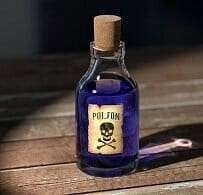A question often asked today is how bad are cleaning products for the environment? In modern society, we have become used to certain levels of hygiene and cleanliness – and in order to ensure that we are not exposed to harmful microorganisms or even dirt, we go to extraordinary lengths to ensure that our homes and businesses are clean and disinfected.
This has led to a flourishing industry that provides the cleaning agents that we use daily. We acknowledge these also provide valuable jobs for people, but replacing chemical-based cleaners with those that are natural doesn’t reduce jobs, it simply improves the product and helps our environment. There is increasing awareness that many of these cleaning agents can cause damage to the natural environment.
Table of Contents
Misleading Labels

One of the problems for those who wish to minimize their impact on the natural world through the use of cleaning products is labelling. Labels are difficult to read at the best of times but knowing what to look for when it comes to cleaning products is particularly difficult due to the technical terms and codes used.
Many products are labelled ‘organic’ or ‘environmentally friendly’ however, the only way to make sure that the products minimize damage to ecosystems, flora, and fauna is to understand the chemicals that are used in the manufacture of the products – and indeed the entire supply chain that is responsible for their availability. Only through understanding will the consumer be able to make an informed choice – and one that does not rely on what are sometimes confusing marketing claims that appear on labels.
Volatile Organic Compounds
First and foremost many cleaning products contain what are called ‘volatile organic compounds‘. These chemicals include nitrogen, ammonia – and perhaps most damaging of all phosphorous (which is common in a variety of detergents used in the kitchen). Reducing the use of these chemicals is not only important for the environment but also for your home and everyone who lives there.
Polluting our Waterways
These compounds are used and then disposed of through the drainage system of the home. They often find their way into groundwater systems – and eventually into lakes, ponds, and rivers. There they can lead to rapid and unnatural plant growth. Eventually, this plant growth will outstrip its natural resources and begin to decay in massive quantities. This can, in turn, lead to algae blooms that soon rob the waters of essential oxygen and can cause enormous dieoffs.
Air Pollution

However, it is not only the compounds that are used in the manufacture of cleaning products that have a detrimental effect. It is, in fact, the entire supply chain. These products are transported over sometimes enormous distances in order to reach supermarket shelves. That entails the use of copious amounts of fuel – and the byproduct of that fuel usage is the emission of greenhouse gasses that contribute to global warming.
Where possible the homeowner should try to buy locally made products thereby reducing the carbon emissions that result from transport.
Landfill
Packaging also plays a role in environmental damage. Non-recyclable plastics fill landfills – and will release volatile chemicals into the natural environment as they decay over sometimes hundreds of years. Purchasing products packaged in recycled plastics and other materials is certainly a step in the right direction.
Summary
Times are changing and manufacturers are responding to pressure from consumers and regulatory bodies alter the compounds used in the manufacture and distribution and disposal of their products – but the consumer can do more. Make sure that the cleaning products that you purchase have the right green credentials. Every individual can make a difference in our environment. It starts by simply taking the first step.

There are so many ways to be greener at home once you start thinking about it.